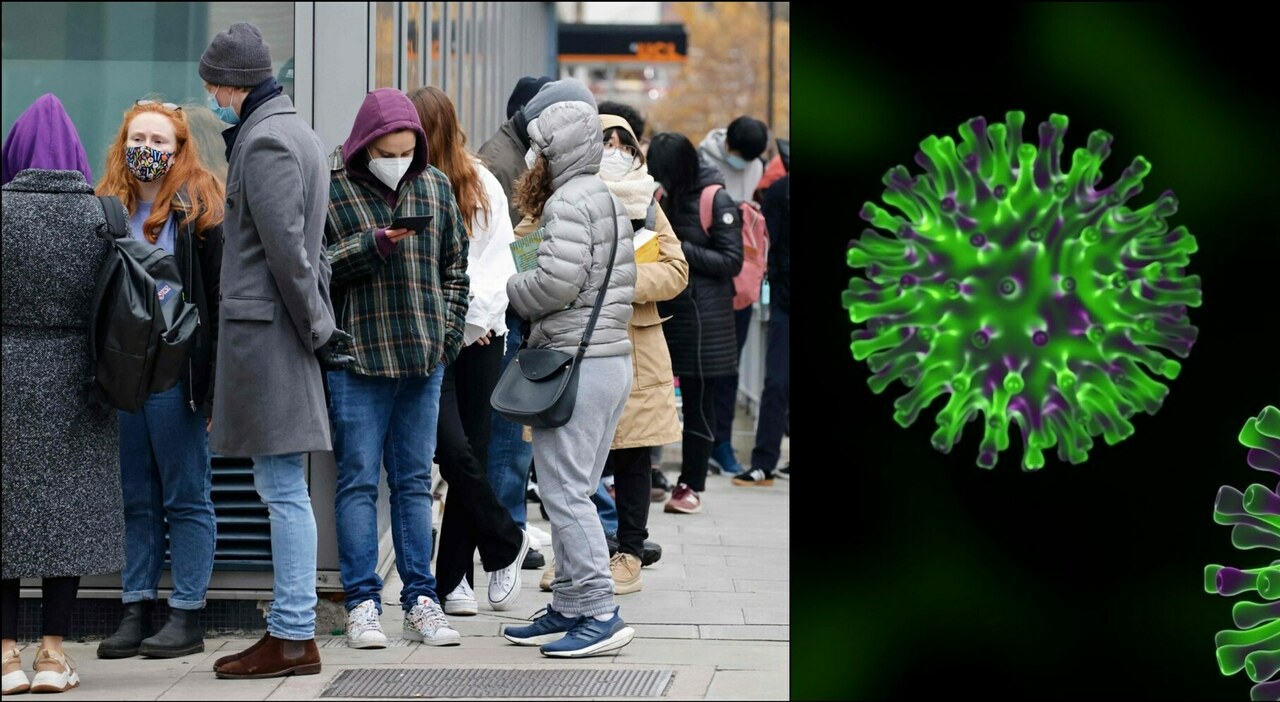Are the symptoms of the disease caused by the Omicron variant milder? Scientists continue to have no evidence to this effect and yesterday a study by Imperial College London confirmed this. But the data on real people, from both South Africa (which first denounced the discovery of the new variant) and Great Britain, still show different elements between the symptoms, such as the absence of loss of taste and smell, and less severity than in previous waves. The impact on the replication of the virus appears to be different, much higher in the bronchi and less in the lungs than the previous variants.
Omicron disease symptoms: the vaccine effect
The reason, however, again according to the numerous studies that are accumulating by the hour, could be due to the work of vaccines combined with the immunization of those who have already experienced Covid on their skin. In simple terms, the percentage of the immune population in different countries has allowed that protective shield that slows down the aggressiveness of the virus. That is, there are fewer vulnerable people, especially as regards the most at-risk and elderly groups who most of all have been vaccinated. Because if it is true that Omicron has shown that it can strongly stem the effectiveness of vaccines, a percentage of protection against the disease remains and in this sense the booster proves even more decisive in closing the door to the virus. For all the others, however, the unvaccinated, the danger of becoming seriously ill and, in the worst case, dying, remains much higher.
Fauci: “Not sure it’s less serious”
«For sure we know that Omicron is more contagious, we are not entirely sure that it is less serious», Anthony Fauci said last night to ‘e-Venti’ on Sky Tg24. «We know that in South Africa it seems that infected people are less likely to go to hospital and contract serious illness – added Fauci confirming first impressions – but this is perhaps also due to the fact that many in South Africa have already contracted alpha or beta and when they are cured have kept a level of immunity that protects them, not necessarily from contagion, but perhaps from contracting the serious illness. This is a question still unanswered, it is not known if the virus itself is intrinsically less virulent or if people have a level of immunity that avoids gravity “.
Omicron in Sudafrica
South African Health Minister Joe Phaahla said the government believes the vaccines and high levels of immunity gained from a previous Covid-19 infection are helping to keep the disease milder in the face of the Omicron-led wave. There have been early anecdotal reports suggesting that Omicron is causing less severe disease than previous variants that have been faced in South Africa, but scientists say it is still too early to draw firm conclusions. “We believe that Omicron may not be less virulent, but that vaccination coverage and the natural immunity of people who have already had contact with the virus provide protection,” the minister said at a press conference. “That’s why we’re seeing a mild disease.”
South Africa has given 44% of its adult population at least one dose of the vaccine, more than many African countries but well below the government’s year-end target. But among the over 50s, vaccination coverage levels exceed 60%. Speaking at the same press conference, Michelle Groome of the National Institute for Communicable Diseases (NICD) said there has been an increase in hospital admissions and deaths for. “We are starting to see a slight increase in deaths nationwide, but once again the figure is much lower than the baseline period we were seeing between the second and third waves,” said Groome, who heads the division of the public health, surveillance and response.
Waasila Jassat, a public health specialist at the NICD, estimated that of the Covid-19-related deaths that have occurred in hospitals since mid-November, more than half of the deceased had co-morbidities or tended to be elderly, and ‘a good portion of them were hospitalized for other reasons and died of other causes ». He further added that vaccination data on deceased people was incomplete, but from self-reported information it appeared that 93% of the deaths were among unvaccinated or incompletely vaccinated individuals. And finally, an additional 3.5% had received the second dose more than five or six months ago.
The Imperial College study
The Omicron variant “largely eludes the immunity obtained with the disease and that with two doses of vaccine” against Covid. This is underlined by the latest report from Imperial College London, which examined data from the UK Health Security Agency (UkHsa) and the National Health Service (Nhs), which recorded all cases of SARS-CoV-2 confirmed in England with a molecular test and that they had carried out a Covid test between 29 November and 11 December 2021. Experts estimate “that the risk of reinfection with the Omicron variant is 5.4 times greater than that of the Delta variant” and that therefore “the protection against reinfection from Omicron, offered by an infection in the past, can reach up to 19%”.
Scientists also estimated the effectiveness of Covid vaccines against symptomatic Omicron infection. Well, “the effectiveness is between 0% and 20% after two doses and between 55% and 80% after the booster dose”. This study «provides other evidence of the very substantial measure with which Omicron can evade the immunity that can be given by having had the disease and having received the anti-Covid vaccine. This level of immune evasion means that Omicron poses a serious and imminent threat to public health, ”says Neil Ferguson of Imperial College. The research “found no evidence that Omicron” causes infections of “severity less than Delta”, considering the proportion of people who tested positive reporting symptoms or the proportion of cases requiring hospital care after infection. “However – the authors specify – the data on hospitalizations remain very limited at this time”.
© breaking latest news
.
